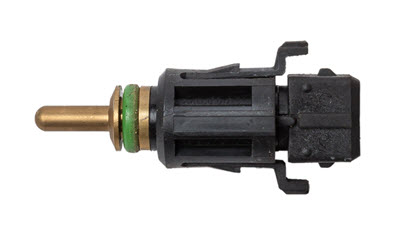


The coolant temperature sensor (CTS) is a vital component of your Volkswagen’s engine management system. It is responsible for monitoring the engine’s temperature and transmitting this information to the engine control module (ECM). The ECM uses this data to control various engine functions, including fuel injection timing and ignition timing. When the CTS fails, it can cause a range of issues, including poor fuel economy, reduced engine performance, and even engine damage. In this article, we will discuss when you should replace the Volkswagen coolant temperature sensor.
The first indication that your Volkswagen’s CTS is failing is often the check engine light coming on. However, there are other symptoms that can indicate a problem with the CTS. Some common symptoms of a failing CTS include:
A faulty CTS can cause the engine to run rich, leading to poor fuel economy. This can be costly in the long run, as you’ll have to spend more money on fuel.
If the CTS sends incorrect signals to the ECM, it can cause the engine to stall or not start at all. This can be dangerous, especially if you’re driving on the highway or in heavy traffic.
The CTS is responsible for monitoring the engine’s temperature. If it sends incorrect data to the ECM, the engine may overheat, causing significant damage to the engine.
A faulty CTS can cause the engine to perform poorly, leading to reduced acceleration and overall engine performance.
If the CTS sends incorrect data to the ECM, the engine may have difficulty starting. This can be frustrating, especially if you’re in a hurry.
If you notice any of the above symptoms, it’s essential to have your Volkswagen inspected by a qualified mechanic. They can determine if the CTS is the cause of the issue and recommend the necessary repairs.
In general, the CTS should be replaced every 100,000 miles or every 10 years, whichever comes first. However, this can vary depending on the model and year of your Volkswagen. It’s always best to consult your owner’s manual for specific maintenance intervals.
If your Volkswagen is experiencing any of the above symptoms, it’s essential to have it inspected as soon as possible. Ignoring the issue can lead to significant engine damage and costly repairs.
The coolant temperature sensor is a crucial component of your Volkswagen’s engine management system. When it fails, it can cause a range of issues, including poor fuel economy, reduced engine performance, and engine damage. If you notice any symptoms of a failing CTS, it’s essential to have your Volkswagen inspected by a qualified mechanic as soon as possible.
In general, the CTS should be replaced every 100,000 miles or every 10 years, whichever comes first. However, it’s always best to consult your owner’s manual for specific maintenance intervals. Regular maintenance, including replacing the CTS when necessary, can help prolong the life of your Volkswagen’s engine and save you money on costly repairs.
Additionally, if you plan to purchase a used Volkswagen, it’s essential to have the CTS inspected as part of the pre-purchase inspection. A failing CTS can cause a range of issues, and it’s better to catch and address the issue before purchasing the vehicle. Regular maintenance, including replacing the CTS when necessary, can help prolong the life of your Volkswagen’s engine and save you money on costly repairs.
If your Volkswagen has been behaving unusually lately, such as poor fuel mileage or a misfiring engine, you 
